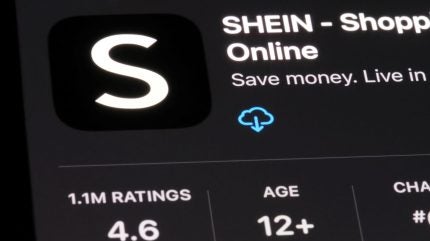
Alena Ivanova, campaigns lead at Labour Behind the Label said: “From watering down commitments on workers’ rights domestically, to courting corporations with dubious records from abroad, the next government welcoming Shein to the City will be yet another betrayal to working people everywhere and the planet.”
Her comments followed reports the UK Labour Party had indicated support for the potential London listing.
According to the Guardian, Labour confirmed a report that its MPs had met the retailer, among “a range of companies including Shein that are looking to invest or list in Britain”.
A spokesperson for the Labour party, cited by the publication, said raising investment, productivity and growth is one of Labour’s missions for government.
Ivanova said LBL had been following the news of senior politicians courting Shein “with dismay”.
“Only last month non-profit investigative organisation Public Eye found that workers producing garments for Shein routinely work over 70-hour weeks. This follows a thread of exposés around alleged forced labour, Uyghur-produced cotton, dangerous chemicals and a cavalier approach to design appropriation.
Are we opening Pandora’s Box with Shein IPO?
“Shein is not the only fashion brand to be embroiled in controversy or to profit from cheap and cheapening labour. The trouble is, where Shein goes others will follow. The model that has allowed the company to grow so rapidly sees workers as a cost to be minimised. Without shops or warehouses, let alone own-brand production sites, Shein churns out new designs subcontracted down a chain of smaller producers with zero transparency or responsibility for workers’ conditions or wages.
“Instead of welcoming Shein with open arms, political parties of all shades should be asking tough questions of the company on its complete lack of transparency and information about its supply chain. The UK is falling behind our neighbours in the EU, where countries have already introduced laws on mandatory human rights due diligence in corporate supply chains. The next government should prioritise introducing new laws requiring companies to prevent serious environmental harm and human rights abuses in their operations and supply chains, as called for by over 150 businesses and investors and supported by 4 in 5 UK adults.
“Finally, the next government should be bringing a message of hope and strength to workers here in the UK and those around the world who find themselves squeezed further and further by an economic system that delivers only for the rich, and sees both their labour and its products as fast, cheap and expendable.”
Meanwhile, The Guardian reports Mathias Bolton, head of commerce at UNI Global Union, which represents service industries around the world, as saying Shein shouldn’t be rewarded with the credibility of being listed in the City, or anywhere else, “given the lack of transparency in their supply chain and shocking reports of severe labour violations.”
The British Fashion Council’s (BFC) Caroline Rush – in comments first seen in the Mail on Sunday – acknowledged Shein has committed to meeting acceptable industry standards, but “questions remain about the ethicality and sustainability of a business model and supply chain that consistently undercuts British designers and retailers.”
UK Labour Party to keep pushing “pro-growth” agenda
Speaking to Just Style, Neil Saunders, analyst at GlobalData, said Labour is keen to showcase its “business-friendly and pro-growth policies” and welcoming Shein helps it to do that, even if it draws criticism from some quarters.
But when it comes to the effect on UK clothing brands and retailers, while the IPO will have a minimal impact since many are already competing with Shein for customers and spend, the likelihood is that Shein will ramp up its growth efforts post-IPO to maintain and expand share price. “There is the danger that competition will intensify,” says Saunders.
The UK government has previously been urged to close the loophole that allows fast fashion firms to ship to the UK without paying customs.
While the EU cannot prevent Shein’s London listing, it can put in place more restrictions around imports and the operations of the Chinese marketplace explains Saunders.
“As these kinds of things have the potential to damage sales and disrupt profit, they can impact a share price or the IPO offer price.”
Shein is reportedly planning a London bourse listing, after previous plans to trade on the New York Stock Exchange fell through.
In May 2024, South Korea alleged harmful chemicals were found in seven of eight children’s leather goods from ultra-fast-fashion giant Shein tested in Seoul, with an industry expert claiming this was not an isolated incident. However Shein maintained it is dedicated to safety testing and selling “reliable products”.



